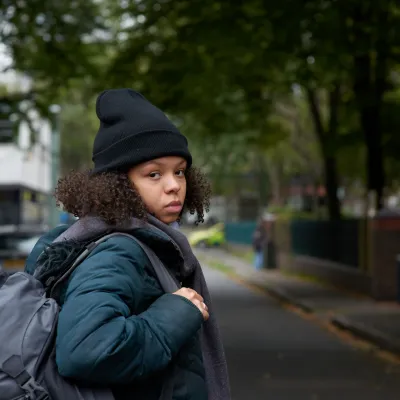At Centrepoint, we welcome any government policy that means disadvantaged young people get extra help to enter work. But we did have concerns about how the Youth Obligation programme might work in practice. This is particularly because it increases the risk of sanctions if young people are expected to attend more sessions at the Jobcentre.
So, over the past year, we have commissioned the University of Warwick to evaluate the Youth Obligation.
What we've found so far
1) Some of the most vulnerable young people are dropping out of the benefits system
Out of the 50 young people on the Youth Obligation that we tracked, around half dropped out – but not because they found work. These young people had to leave because they were struggling with ongoing issues, such as poor mental health or homelessness.
It’s really difficult for young people to start looking for a job until they’ve dealt with these complex issues. What’s really concerning is that they had to drop out of the system altogether. That means they stopped receiving their benefit payments as a result.
2) Sanctioning rates were higher for young people on the youth obligation
Our research found that 36% of young people on the Youth Obligation were sanctioned, compared to 24% of young people not on the Youth Obligation.
Young people might be sanctioned for a range of reasons, like missing an appointment at the Jobcentre. Some of the young people we support struggle to meet what’s expected of them because they simply don’t have the tools to do so, such as access to the internet.
3) Many young people aren't getting the work placement as promised
The Youth Obligation promises to offer traineeships or work placements to those still on the programme after six months. Despite this, 96% of the young people we surveyed weren't offered this support.
It’s hard to know why this is happening. However, as good quality work experience is crucial to a young person getting on the career ladder, this should be a priority for DWP to get sorted.
4) Support should be tailored to the needs of the young person
Only 12% of young people surveyed rated Jobcentre staff understanding of their situation as good. If tailored support is going to be offered to vulnerable claimants, it’s essential every single one feels their situation is understood.
Jobcentres need to reach out to third party providers, such as Centrepoint, more often. We know the needs of the young people we support and we can work with Jobcentres to offer the tailored help they need.
5) So far, the youth obligation does not seem to help young people into work
Our research shows that one year after starting the Youth Obligation programme, 35% of young people were not in work but also not claiming benefits. They were essentially hidden from the system and not receiving the financial support they needed.
Only a fifth of young people were actually in employment. Worryingly, around half of those in work only had cash-in-hand employment. This is unregulated and irregular.
The young people involved in this research were those with complex needs. However, it’s alarming that so many young people have already slipped through the cracks of the Youth Obligation scheme.
Working together as a sector
We’re really pleased that the Work and Pensions Select Committee invited us to provide evidence this month, alongside colleagues from the Prince’s Trust, YMCA and the Young Women’s Trust.
As a sector, we understand what works most effectively in supporting vulnerable people into work. We hope our evidence will enable the government to make positive changes to the Youth Obligation.
Read our briefing on the youth obligation
Centrepoint's briefing on the Youth Obligation for 18-21 year olds in areas with Universal Credit Full Service





